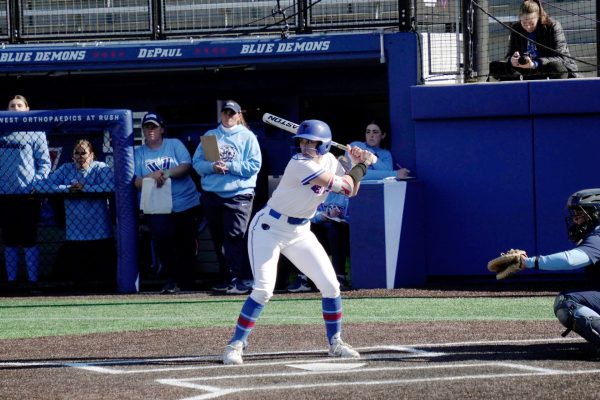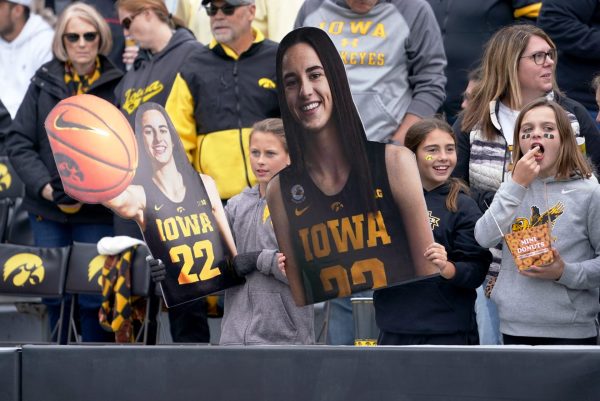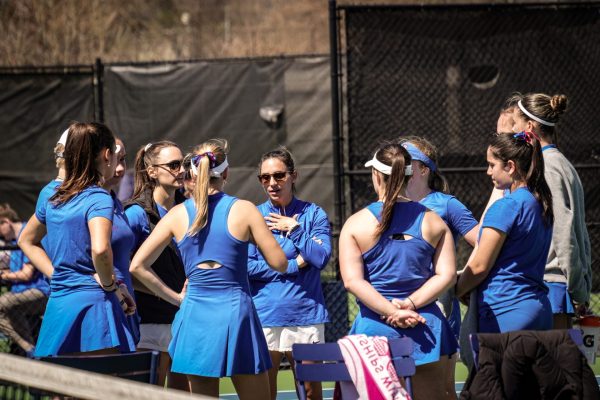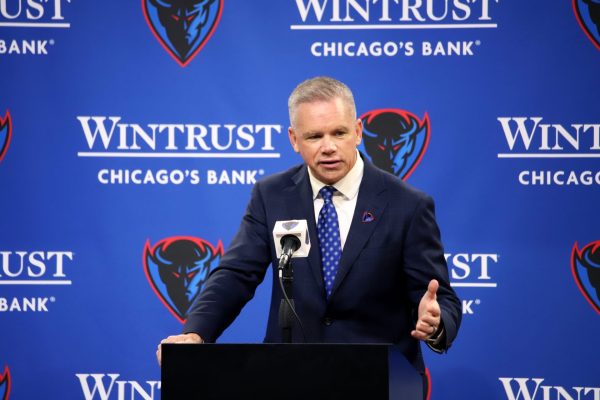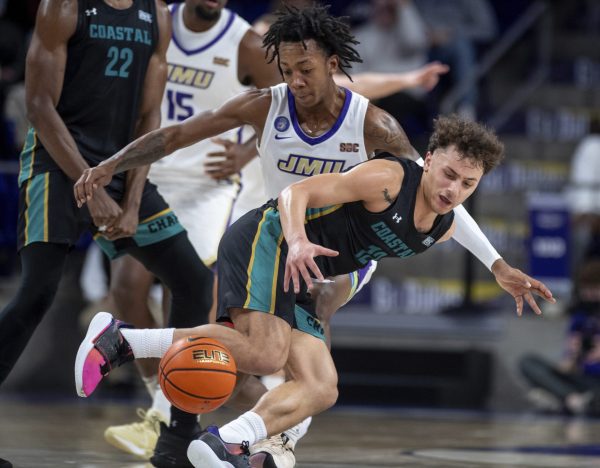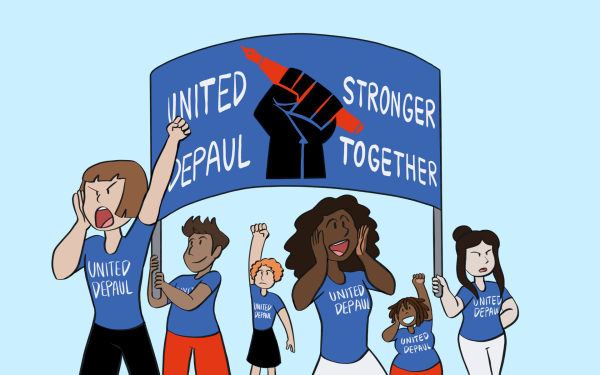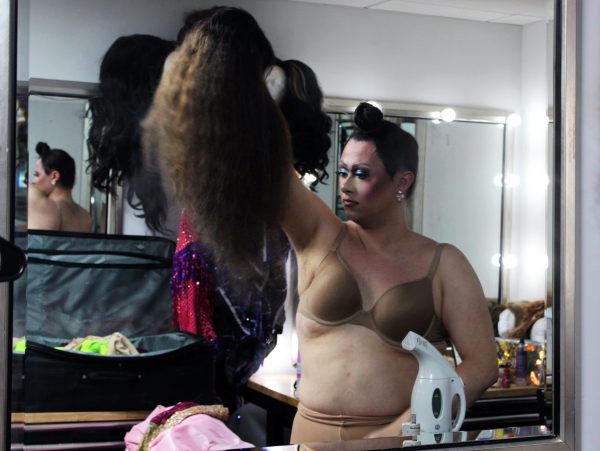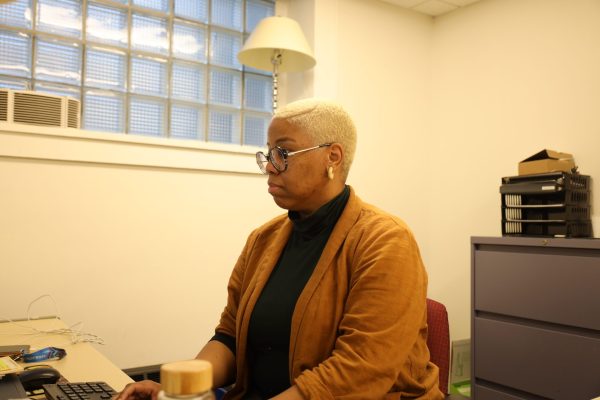Peevy expresses support for NIL rules at Chicago Sports Summit
Photo courtesy of DePaul Athletics
DeWayne Peevy during his first press conference as DePaul’s newest athletic director.
The fifth annual Chicago Sports Summit, hosted by the Chicago Sports Summit Foundation, took place Tuesday night. The hour and a half event featured highly recognized experts discussing a variety of topics regarding the rise of online sports media, the NFL’s handling of COVID and its protocols, and the new avenue of endorsements based on the recent NIL (Name, Image and Likeness) rules for college athletes in sports.
Vice President and Director of Athletics DeWayne Peevy was one of the speakers at the event. Being interviewed by Managing Partner of Midwest Orthopaedics Dr. Brian Cole, Peevy emphasized his support of the fairly new NIL rules. He believes that the new rules give student athletes the ability to not only make money off of their name, image and likeness, but also prepare them for the realities of life that take place in the real world.
“NIL give student athletes the ability to use their name, image, likeness and their voice to be compensated, just like every other student on campus,” Peevy said. “It’s not something that has not been done. There is a lot of money out there and brands that want to be associated with it. There are risks to take by locking into something that has nothing to do with what you do on and off the court, but there are opportunities. I’d rather have them learn on campus and make mistakes as college athletes while I have their back versus experiencing this for the first time in the real world.”
One of the most important components of the NIL avenue is the access to agencies to represent athletes and help construct their deals. Denise White, founder of EAG Sports Management, expounded on the creation of EAG based on filling the needs that athletes can’t get fulfilled through their original agents/agencies.
“I realized there was a lapse between agents and players, not because the agents didn’t want to, but because they didn’t have the capacity or the staff to do it, so I figured why not create a company that can handle everything for the athlete like a one-stop shop.” White said.
With access to agencies, the relationships between athletes and endorsement deals are becoming the new normal in college sports. But NIL is also playing a big role in day-to-day news coverage. Front Office Sports (FOS) is a newsletter business that focuses on the nuts and bolts of news content. Since its creation in 2014, FOS has exploded through social media and become a national brand, targeting the 25-50 age demographic who may not receive their sports news on TV. Adam White, the founder and CEO, is a fan of the new NIL rules, and elaborated to NBC Sports Chicago and ESPN 1000 radio host David Kaplan, on how NIL plays a huge part in his newsletter’s coverage.
“NIL is big from a coverage standpoint,” White said. “We had one of our best days ever on social media covering the deals that these players were signing. I think it is going to change how brands view college athletes. Brands are paying athletes for association, not play. This is not a new concept, just new for college athletes.”
NIL can be beneficial for the polarizing stars of universities throughout the country. However, it may be a little difficult for the average players. One of the ways that help can assist in this new change is not what you know, but who you know.
Peevy stated that he wants to bring DePaul back to being “Chicago’s team”. To potentially succeed through the new rules, one of the ways Peevy desires to make this experience worthwhile is to create a minor hopefully by the winter quarter for non-business students so they can be educated the topic of NIL and its impact in business. He also wants to develop open office hours to open opportunities to increasingly get to know his students and create business cards for student athletes throughout the university. These potential avenues improve the chances of achieving one of his goals: to increase networking opportunities.
“We are not giving our students enough credit. These young people have always surprised us when they hit adversity. The trust level between college athletics and administrators is not there the ways it has been. You may have trust with your coach but from an administration level you have not work with students hand in hand on these types of things. I want to increase networking opportunities, especially with our infiniti in the city.”


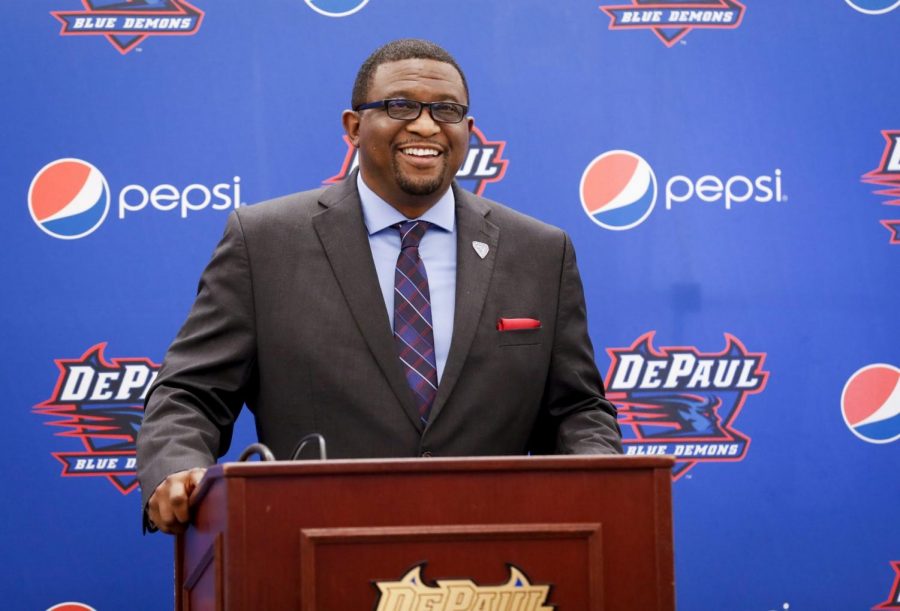
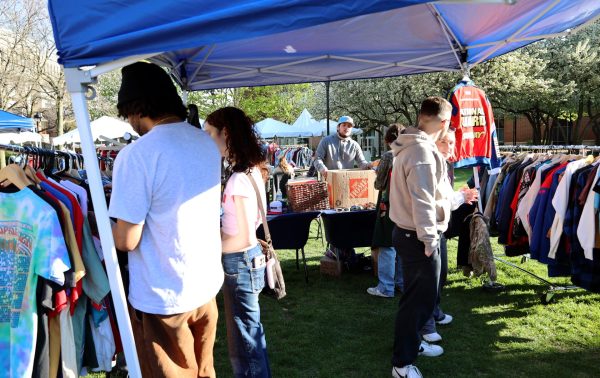
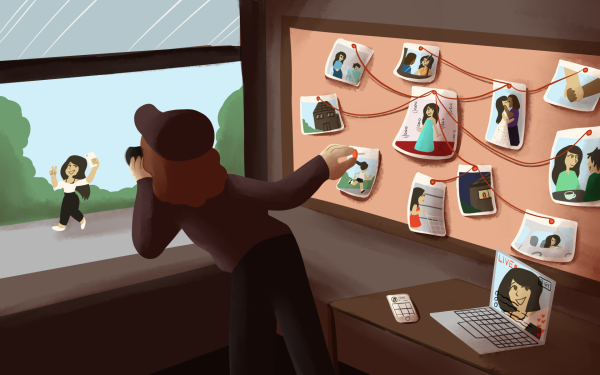
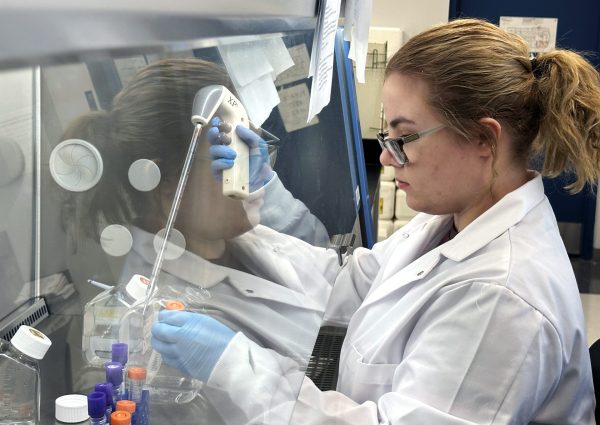
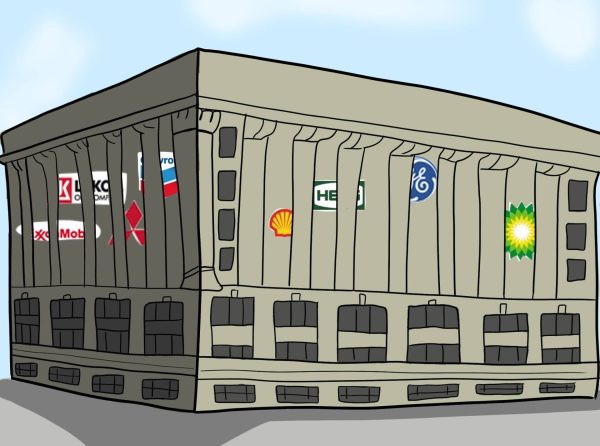
![DePaul sophomore Greta Atilano helps a young Pretty Cool Ice Cream customer pick out an ice cream flavor on Friday, April 19, 2024. Its the perfect job for a college student,” Atilano said. “I started working here my freshman year. I always try to work for small businesses [and] putting back into the community. Of course, interacting with kids is a lot of fun too.](https://depauliaonline.com/wp-content/uploads/2024/04/ONLINE_1-IceCream-600x400.jpg)
